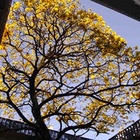Part 1 >>
Japanese cuisine was also a popular topic. Our shows aired on weekday mornings so many of our listeners were housewives, but we found that there was interest among men as well.
Brazilians are known to incorporate soybeans in their cooking, so we introduced a recipe for cake using “okara” (bean curd lees from making tofu). Other ingredients included bananas and fubá (corn powder), which are commonly used by Brazilians. We immediately received a call after introducing the recipe.
“Sorry, but would you please list the ingredients for me one more time? My wife is out, and I want to make this cake for her to have when she returns.”
It made me smile as I thought, “Wow, what a nice husband!”
We also introduced a pan-fried bok choy dish. During the broadcast I mentioned that it would taste even better if you used oyster sauce as a secret ingredient. A few days later, as I was shopping for vegetables at the morning market, the owner of the greengrocer said, “There was a guy who just came by to buy some bok choy, and he said he got the recipe from your show.”
“Really? That’s great!” I replied joyfully.
The owner suddenly asked, “So what exactly is that… something sauce?”
“It’s a secret seasoning. Using a little bit makes it taste much better.”
“The guy said he was going to buy that ‘something sauce’ and cook with it for the first time today. He looked really excited about it.”
I was moved by his story. Radio is so wonderful! I had put my whole heart into my broadcasts, and my listeners were receiving my messages with the same kind of enthusiasm.
There was a fan that would always call the show once a week. She was a Middle-Eastern woman with an interest in Japanese culture. Among the topics we discussed were green tea, tofu, yaki-soba, and acupuncture. However, one day she called in with a concerned tone—“Did something happen to Asashōryū?” she asked.
“Sorry, can you repeat that?”
“Asashōryū. My husband, our two sons, and I are all big fans of his. Why hasn’t he been competing lately?”
I was surprised and dumbfounded. I had no interest at all in sumo wrestling.
“I haven’t been watching [Japanese] TV lately, so I will look it up,” I said.
I watched the NHK news and Sumo tournaments for the next two days, and even had a friend in Japan explain the situation to me in detail. I finally understood the story and was able to provide an answer to my fan. She was very disappointed, saying, “There’s no sumo wrestler as cute as him…”
A colleague in charge of another show asked me to come up with a question for a “Guess That Word” type of quiz. It was part of a marketing campaign to give away CDs to two winners in a random drawing, and the listeners gained entry to the drawing by calling or mailing in the correct Japanese word. I was told the word should be a bit difficult since the area used to be a Japanese plantation back in the day, so I chose the word “Shōrisha” [victor].
Although we didn’t receive too many postcards, for a month we received phone calls non-stop.
One of our workers screening the calls told me a funny story. One of the callers was a Brazilian man who seemed to be extremely frustrated.
“I wanted the CD so I asked all of my neighbors and my Nikkei friends, but no one new the answer. I thought about it, and figured someone who is educated would know more Japanese—so I went out of my way to choose a Japanese doctor and made an appointment. I asked about the mystery word after my checkup, but this doctor didn’t know any Japanese! What a waste!”
We had some fans that would actually visit the station. Fans from a farming village brought fresh fruits and coffee beans for us. The children set their gaze on “Laura Honda”, meeting me with their delightful, glittering eyes. In community radio, the announcer had to do almost everything on their own, so to the kids I may have seemed like Superwoman.
When walking around town, sometimes people would call out, “Laura Honda!” One time, it happened while I was inside a crowded store. A man suddenly burst in and said, “I was about to go pick up my mother, but as I passed by I noticed that you’re “Laura Honda,” so I stopped the car to say hello! I listen to your show every day. I hope you keep it up forever!” After he left, the other patrons in the store also came up to talk to me, one after another.
In closing, a word about the origins of the phrase, “Ohayo Bom Dia”: when I began thinking about a title for my show, I ran into my neighbor in the elevator at my apartment. “Bom dia” [“Good morning,” in Portuguese], I said. Then, with a smile, the green-eyed Italian lady replied: “Ohayo”. At that moment, “Ohayo Bom Dia” floated into my mind, and it became the title of our program.
Thanks to “Ohayo Bom Dia”, I was able to do work that was both enjoyable and rewarding. But after suddenly receiving an offer to work in Japan for at least 2 years, I decided to end the program in 2007. From there, my story as a “dekasegi” began. I hope to write about that one day.
© 2011 Laura Honda-Hasegawa




